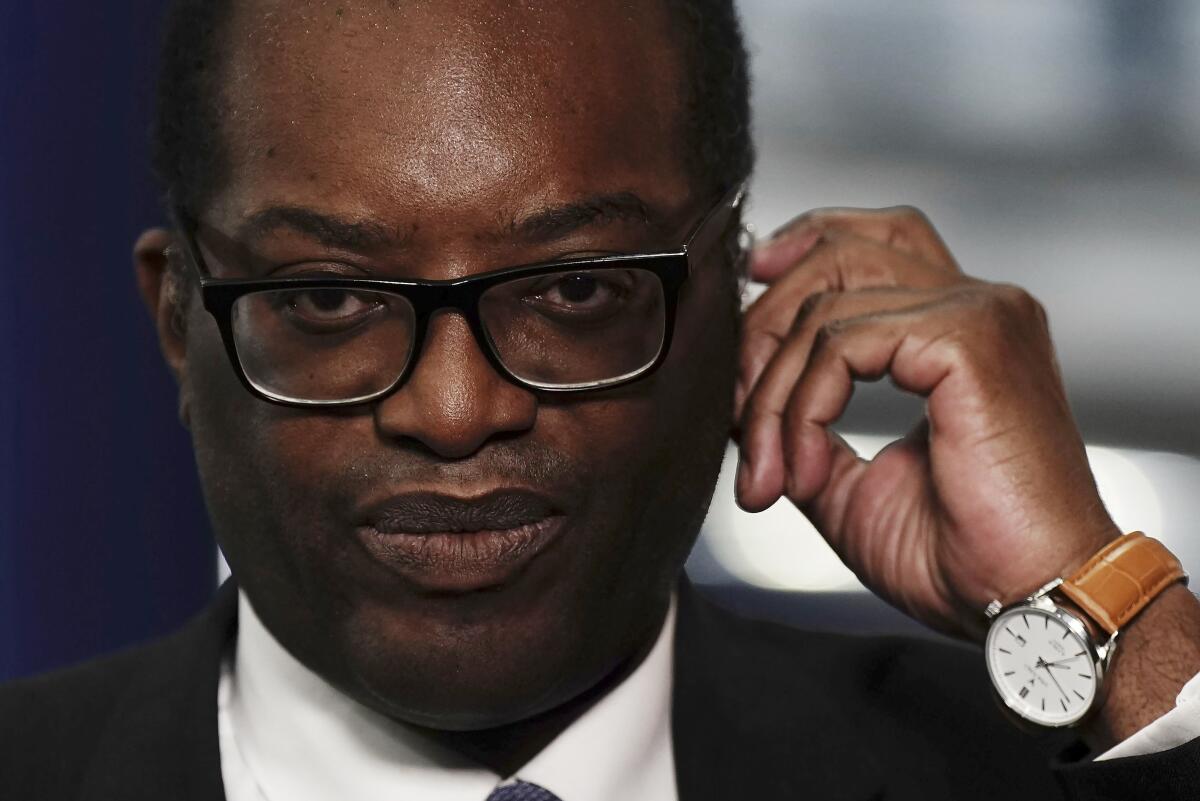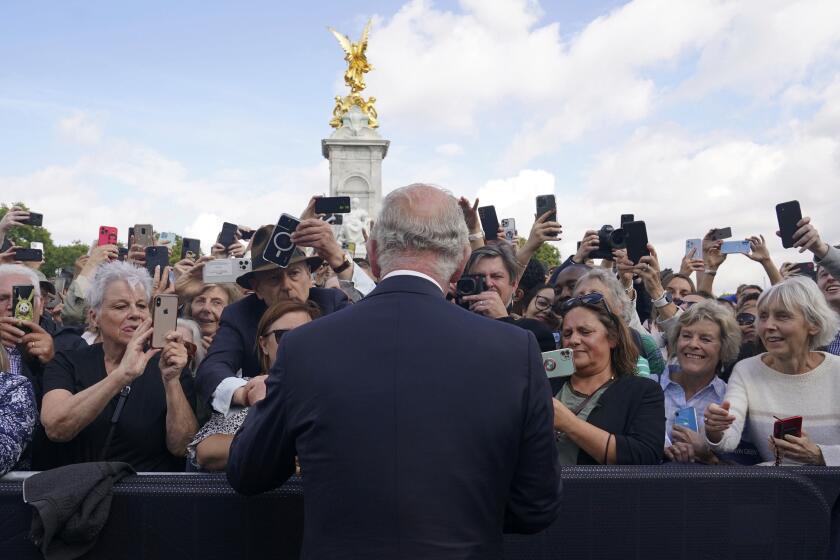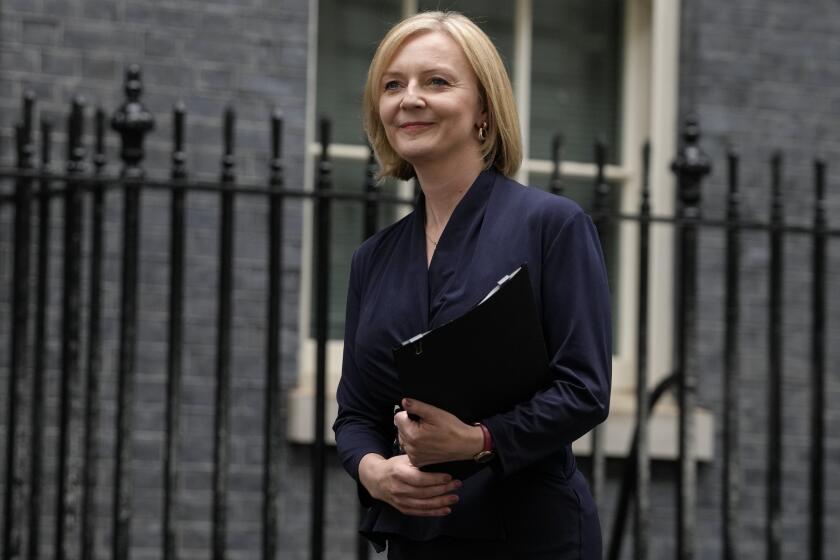In striking U-turn, Britain scraps tax cut for wealthy that helped spark market turmoil

- Share via
BIRMINGHAM, England — The British government has dropped plans to cut income tax for top earners, part of a newly announced fiscal package that sparked turmoil on financial markets and sent the pound plummeting to record lows.
In a dramatic about-face, Chancellor of the Exchequer Kwasi Kwarteng, Britain’s finance minister, said Monday that he would abandon plans to scrap the top 45% rate of income tax paid on earnings above 150,000 pounds ($167,000) a year.
“We get it, and we have listened,” he said in a statement. He said “it is clear that the abolition of the 45p tax rate has become a distraction from our overriding mission to tackle the challenges facing our country.”
The pound rose after Kwarteng’s announcement to around $1.12 — about the value it held before the Sept. 23 budget announcements.
The U-turn came after a growing number of lawmakers from the ruling Conservative Party of Kwarteng and Prime Minister Liz Truss turned on the fiscal package announced 10 days ago.
“I can’t support the 45p tax removal when nurses are struggling to pay their bills,” Tory lawmaker Maria Caulfield said.
The reversal also came hours after the Conservatives released advance extracts of a speech Kwarteng is due to give later Monday at the party’s annual conference in the central English city of Birmingham. He had been due to say: “We must stay the course. I am confident our plan is the right one.”
Truss herself defended the measures Sunday, but acknowledged that she could have “done a better job laying the ground” for the announcements.
Royal mourning will temporarily turn attention away from Britain’s many pressing problems and how a new prime minister will tackle them. Then what?
She took office less than a month ago, promising to radically reshape Britain’s economy to end years of sluggish growth. But Kwarteng’s Sept. 23 announcement of a stimulus package that includes 45 billion pounds ($50 billion) in tax cuts, to be paid for by government borrowing, sent the pound tumbling to a record low against the dollar.
The Bank of England was forced to intervene to prop up the bond market, and fears that the bank will soon hike interest rates caused mortgage lenders to withdraw their cheapest deals, causing turmoil for home buyers.
Prime Minister Liz Truss started her first full day as Britain’s new leader amid an energy crisis that is hitting the country hard.
The cuts were unpopular, even among Conservatives. Reducing taxes for top earners and ditching a cap on bankers’ bonuses while millions face a cost-of-living crisis driven by soaring energy bills was widely seen as politically toxic.
Truss and Kwarteng insist that their plan will deliver a growing economy and eventually bring in more tax revenue, offsetting the cost of borrowing to fund the current cuts. But they also have signaled that public spending will need to be slashed.
Kwarteng has promised to set out a medium-term fiscal plan Nov. 23, alongside an economic forecast from the independent Office for Budget Responsibility.
Axing the top tax rate would have cost about 2 billion pounds, a small share of the government’s overall tax-cutting plan. Kwarteng said Monday that the government was sticking to its other tax policies, including a cut next year in the basic rate of income tax and a reversal of a corporation tax hike planned by the previous government.
News Alerts
Get breaking news, investigations, analysis and more signature journalism from the Los Angeles Times in your inbox.
You may occasionally receive promotional content from the Los Angeles Times.
Tony Danker, who heads the business group Confederation of British Industry, said he hoped the government U-turn would bring stability to the markets.
“None of this growth plan will work unless we have stability. Let’s hope this is the beginning of it,” he told broadcaster LBC.
Opposition parties said the government should scrap its whole economic plan.
“UK gov U-turns on top tax rate abolition because it’s a ‘distraction,’” Scottish First Minister Nicola Sturgeon of the Scottish National Party wrote on Twitter. “Morally wrong and hugely costly for millions is a better description. Utter ineptitude.”
More to Read
Sign up for Essential California
The most important California stories and recommendations in your inbox every morning.
You may occasionally receive promotional content from the Los Angeles Times.











